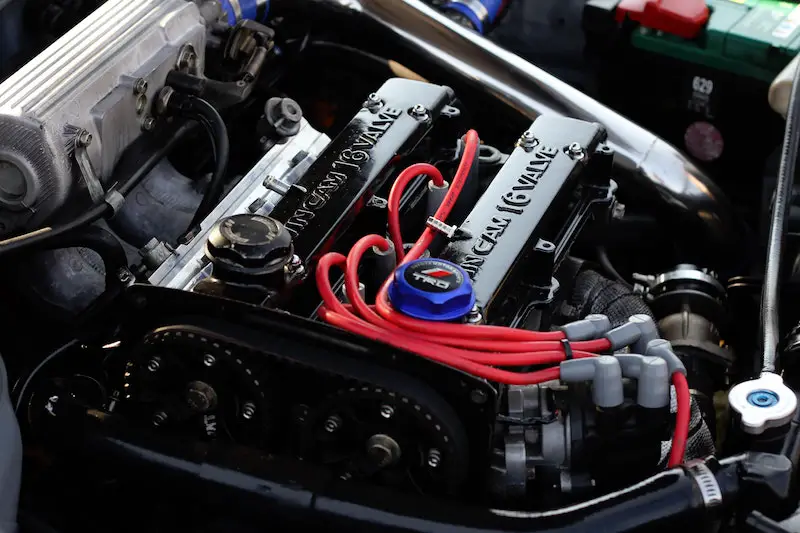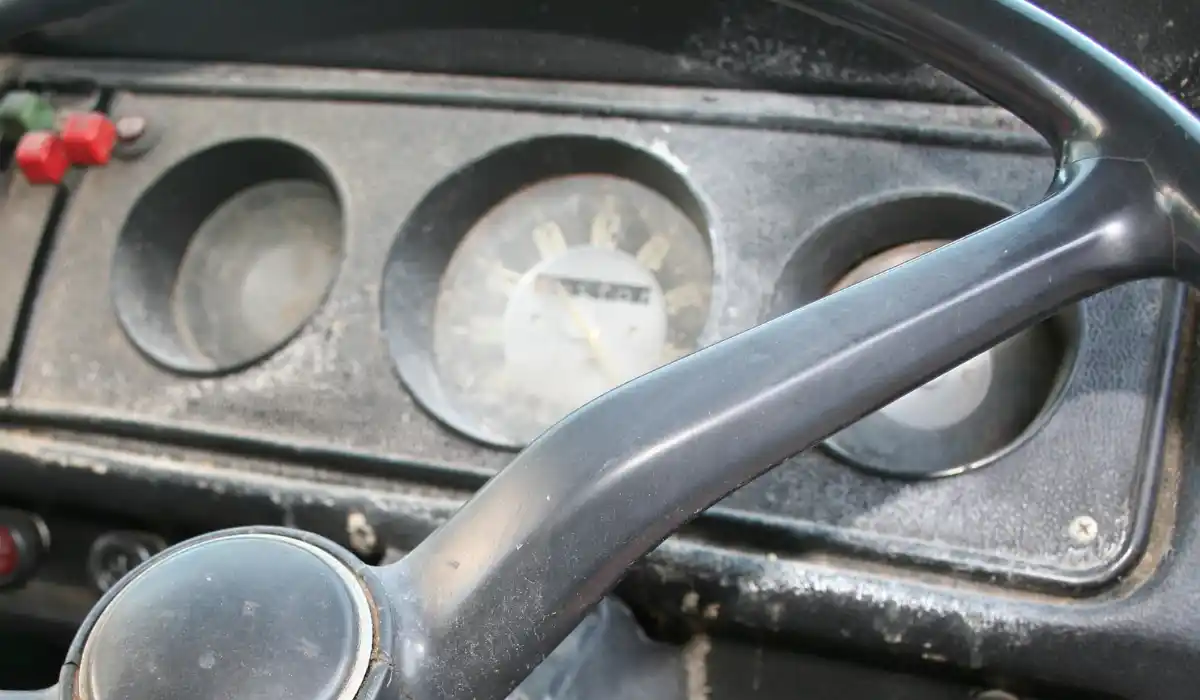
Most of us want our vehicles to continue running in the best shape possible. This means staying on top of car maintenance to keep things running smoothly.
When it comes to the engine and fuel system, it’s the fuel injector that’s the bridge between your gas tank and engine being able to use the gas. These injectors are used every time you start your vehicle, so it’s important to maintain them.
You might be wondering – should I use fuel injector cleaner? In our opinion, it’s a good idea to regularly use this product for routine fuel cleaning for your vehicle.
Cleaning your fuel injectors keeps your MPG accurate, eliminates engine chatter, reduces engine noise, and slightly reduces emission output. With the right cleaner, you can cut down on maintenance frequency and improve the overall performance of your vehicle.
In this post, we’ll be looking at the best fuel injector cleaner recommendations on the market. Don’t forget to keep scrolling for an in-depth buying guide and helpful FAQ, making it easier for you to make the right decision.
Let’s jump right into it!
Jump Ahead To:
Chevron Techron Concentrate Plus Fuel System Cleaner (Best Fuel Injector Cleaner Overall)

When it comes to the best fuel injector cleaner for most drivers, it’s the Chevron Techron Concentrate Plus Fuel System Cleaner that we would recommend. This is a popular choice among car enthusiasts and offers great value for cleaning your fuel system.
If you’re looking for a product that cleans and restores your entire fuel system, it’s hard to go wrong with this cleaner. It comes in a portable and easy to use container so there’s no need to fumble with a huge jug when you’re trying to get it in your gas tank or fuel system.
This is a fuel system cleaner that’s designed for universal fuel injection treatment. It’s such a popular choice because of its patented, polyetheramine technology, which is an effective cleaning formula unique to Chevron products.
The Chevron Techron Concentrate Plus Fuel System Cleaner works by removing carbon deposits and restoring lost power and performance in sluggish engines. It’s especially a great choice for newer vehicles, which require the delicate balance of chemicals that this product provides.
Not only is it good for new vehicles, this is also one of the best fuel injector cleaners for high-mileage vehicles. This is thanks to the aggressive blend of cleaning chemicals that keep engines clean and running efficiently.
The main drawback to this fuel cleaner is that it’s not as long lasting as some of the other cleaners. It’s meant for repeated use, with Chevron suggesting that a bottle be used every 3000 miles for optimal performance.
Overall, the Chevron Techron Concentrate Plus Fuel System Cleaner stands as the best fuel injector cleaner for most applications. It’s affordable, easy to use, and optimally designed to improve the performance of your engine and fuel system.
Lucas 10020 Fuel Treatment

Up next, we would recommend the Lucas 10020 Fuel Treatment as another great choice for a reliable and effective fuel injector cleaner. This product is known as a tune-up in a bottle and ideal for managing any fuel injector symptoms.
It works to clean and lubricate the fuel system using a blend of oils and additives without any harmful solvents. After running through the system, the Lucas 10020 Fuel Treatment will increase power, lower exhaust emissions, and increase fuel mileage.
This cleaner is highly versatile, formulated for both gasoline and diesel engines. Can also be used on carbureted or fuel injected vehicles, making it a versatile choice for both new and older cars.
The main benefits of this cleaner is that it cleans and lubricates the carburetor and injectors. This allows the engine to operate at maximum efficiency with the fuel burning more thoroughly for increased power and less consumption.
With diesel engines, it helps to neutralize the harmful effects of low sulfur diesel fuel. It also breaks down any unwanted carbon deposits, helping diesel engines run more efficiently as well.
If you’re looking to increase the life of your fuel injectors and optimize the efficiency of your vehicle engine, it’s the Lucas 10020 Fuel Treatment that we would recommend. This is another great fuel injector cleaner that’s affordable, easy-to-use, and designed to improve performance.
Red Line Complete SI-1 Fuel System Cleaner

The Red Line Complete SI-1 Fuel System Cleaner is another suitable choice to use for cleaning the fuel system on your vehicle. If your vehicle is suffering from any power or fuel related symptoms, this is a great product to run through the system.
This cleaner is made with a concentrated blend of powerful high and low temperature detergents. These detergents are designed to clean fuel injectors, carburetors, valves, and remove any unwanted combustion chamber deposits.
It can be used to clean all different types of fuel injectors, including on older and diesel vehicles. The cleaner will also enhance fuel stability, reduce gum build-up, and help to prevent the formation of varnish.
Running this through the system will increase engine performance and improve fuel economy, it will even reduce the need for octane by up to two points, ideal if you’re in an area with lower quality fuel.
When it comes to treatment, it’s a good idea to use one bottle per tank for it to be most effective. However, running it through your system after every oil change is a suitable and more reasonable alternative.
Overall, the Red Line Complete SI-1 Fuel System Cleaner is another great choice if you’re looking for an affordable and effective fuel injector cleaner. Running this through the fuel system will help to improve the overall performance of your vehicle and manage any fuel injector symptoms you’re suffering from.
Fuel Injector Cleaner Buying Guide

It’s easier to keep up with optimum vehicle performance by maintaining your fuel injectors. This is a vital component of your engine and it’s important to stay on top of any fuel injector issues.
Should any issues arise, you also need to know how to properly clean them to avoid any mistakes in the future. Let’s take a look at some helpful tips and strategies for cleaning your fuel injectors.
What Do You Need to Clean Your Injectors?
There are a few basic tools and other supplies you need for cleaning your injectors. It all starts with the best fuel injector cleaner, so choose one of our recommendations from this post.
You’ll also need a fuel pressure gauge and a hose to attach the fuel injectors and rail. Finally, a U-tube is another necessary component for cleaning your injectors.
There’s nothing else you need to get this done on your own. Make sure you have some basic tools nearby, just in case you run into any other issues while working on the injectors.
This is also a great time to perform a visual diagnostic on your vehicle. While inspecting the engine, you can make a list of any other maintenance tasks that need to be completed. This way you won’t be cleaning your injectors without a reason.
When Should a Fuel Injector Cleaner Be Used?
Some people recommend avoiding using an injector cleaner until you run into some issues. Alternatively, you’ll be better off with preventative measures that will offset most of the issues you might run into.
We recommend cleaning the injectors on a regular basis, which will keep them running the most efficiently. It’s a good idea to perform a deep clean of your fuel injectors once a year, or every 30,000 miles.
Once you reach this timeframe, or mileage, follow the instructions and clean the injectors. This way you don’t need to worry about it again for another year, or thirty thousand miles.
What Are the Symptoms of a Clogged Fuel Injector?
There are a few main clogged fuel injector symptoms. Being aware of these can help you manage the issue immediately, rather than waiting for something to go seriously wrong.
Here are some of the main symptoms to keep an eye out for:
Lowered Fuel Economy
Pay attention to any MPG displays in your vehicle. This can usually be found somewhere on the dashboard, although you might have to switch menus to find it.
You should have a general idea of what sort of fuel economy your vehicle is getting. If not, keep an eye on the MPG display from this point on.
Check your mileage when you’re in traffic, when you’re on the highway, and when you’re driving through urban areas. Once you have a general idea of your fuel economy, you can start keeping a better eye on it.
If you notice a lower fuel economy, such as a decrease of 3-5 MPG, this could be an indication of fuel economy problems. While it’s not necessarily your fuel injectors, it could also be an issue with a spark plug misfiring, incorrect tire pressure, bad air filters, and a few other problems
However, you shouldn’t rule out your fuel injectors. Make sure to clean them and perform any other necessary maintenance to try to improve your fuel economy.
Forcing Your Engine
If you’re having trouble starting your engine, or if it feels like it doesn’t want to start, it’s possible you could have clogged fuel injectors. The way the injectors work is by releasing a mist of gasoline to get the engine started.
When one or more of the injectors aren’t firing properly, there will be unbalanced results in the engine. This could lead to problems starting the engine.
Engine Not Firing on All Cylinders
You’ll definitely be able to hear when not all engine cylinders are firing properly. The engine will sound different and have difficulty starting, as well as running.
If you hear something weird under the hood, you’ll want to open it up and take a look. Take a look at the spark plugs, if there’s gasoline on them you definitely have a clogged fuel injector.
How to Use a Fuel Injector Cleaner

Check the specific make and model of the fuel injector. This information can be found in the user’s manual for your vehicle.
Next, get all of the tools and materials needed to work on the injector. Don’t forget to wear gloves to keep your hands clean and to avoid absorbing any fuel through your skin.
Here are the steps to follow for cleaning the fuel injector:
1. Disconnection
Get started by disconnecting the fuel pump from the injectors. This is where you’ll need the U-tube, which ensures the gasoline gets back into the fuel tank or fuel return line.
There will be a different process for disconnecting the fuel pump depending on the make and model. Check on YouTube if you’re having trouble or need more help.
Disconnect the Pressure Regulator Vacuum Line
The pressure regulator vacuum line can normally be found right above the fuel injectors. However, this depends on the make and model of your vehicle.
When disconnecting the line, keep the vacuum line perfectly intact once it’s removed. Position it over the side of the hood so that it’s accessible when it’s ready to be reconnected.
2. Connection
With the hose you have on hand, connect it to the fuel pressure test port. Once connected, make sure that it’s properly secured.
There should be no exposure to the fuel. Double check all of the connection points and verify that the parts are clear.
All of the fuel injector cleaners are flammable. It’s important to use caution when using these car cleaning chemicals.
3. Remove Fuel Tank Cap
Now you’re ready to remove the fuel tank cap. After removing it, set it aside in a safe space or attach it to the fuel tank access lid if there’s a spot for it.
4. Turn the Car On
You need to be 100% sure that the fuel pump is off before turning the car on. If you have followed the previous steps correctly, the fuel pump will not engage.
After turning on the vehicle, the fuel injector cleaner will run through the engine. This process takes up to 10 minutes, afterwards the engine will shut down.
When the engine shuts down, the cleaner has run its course. Remove the cleaner tube, being careful for any leftover residue or moisture.
5. Reconnection
With the cleaner having run its course, you can start reconnecting everything. Start with the fuel pump power supply, and reattach it to the fuel pump.
Don’t forget to reconnect the pressure regulator hose. Next, put the fuel cap back on and shut the fuel door.
6. Quality Check
Once you’re done reconnecting everything, turn the car back on. Listen for the fuel pump and ensure that the fuel injectors are functioning properly.
Go for a short 5 to 10 minute drive and keep listening. You should also notice that the fuel injector symptoms you had before are gone.
If the symptoms are gone, it’s likely that the injectors will need to be replaced. In this case, you’ll want to bring your vehicle to your preferred local mechanic or dealership.
Easier Alternative to Clean Your Fuel Injectors
Those of you that are not confident with your skills under the hood, or want to partially clean the fuel system, could take advantage of this strategy. This method gets some of the fuel injector cleaners through the fuel system without having to disable any of the vehicle components.
Here’s how to do it:
Ensure the Fuel Tank is Almost Empty
It’s important that the cleaning solution isn’t diluted by fuel in the gas tank. Start with having a fuel tank that’s close to empty. Anything around one gallon of gas or less is ideal.
Use the Right Amount of Injector Cleaner
The amount of fuel injector cleaner you use depends on the capacity of your fuel tank. Check your owner’s manual for an accurate fuel tank size.
Next, refer to the instructions provided with the cleaner for how much of the solution to use. Match the amount you need to the size of your fuel tank.
Add Fuel
Rather than starting your engine and letting it run, you want to add fuel to the tank. It’s okay to go on a short drive to your local gas station, but avoid driving through long with the cleaner and low fuel level.
Adding fuel helps to push the cleaner through the fuel system and into the injectors. This helps to clean the entire fuel system, without having to disable anything in the engine.
Will Fuel Additives Help the Fuel Injectors?
Fuel additives can be used in a number of different situations. However, they’re best suited if you’re planning on storing your vehicle for a long period of time.
These additives are designed to prolong the life expectancy of the fuel and oil in your engine. This way there’s no need to worry about long-term corrosion or any unwanted buildup of harmful chemicals.
They also help keep your injectors lubricated. This prevents them from getting unnecessarily damaged while the vehicle is sitting.
The Benefits of Fresh and Clean Fuel Injectors

Controlling Fuel Consumption
One of the main symptoms of clogged or dirty fuel injectors is a decrease in fuel economy. Over time, this can end up costing a significant amount of money every year.
Regularly cleaning the injectors will keep your car running an optimal performance. This means you’ll enjoy the best MPG that your vehicle has to offer.
Decreased Friction
All of the components in the engine are constantly moving and rubbing against one another. The metal parts especially, need to be lubricated to prevent unwanted build up and to prevent them from overheating.
Using a fuel system cleaner can help to increase the lifespan of these components. It also keeps them running in ideal shape, which can prevent issues further down the road.
Lower Emissions
When the vehicle is running in prime shape, it’s producing less harmful emissions. These cleaners also help to lower emissions by breaking down any of the gunk that has built up in the engine.
Types of Fuel Injector Cleaner
Dissolvents
Dissolvents are the most common type of fuel system cleaner. They’re designed to break down carbon composites by using polyetheramine.
In the car’s injector and combustion chamber, impurities in the fuel start to build up and lead to unwanted deposits that can impact performance. Using a dissolvent cleaner breaks these deposits down into smaller pieces and allows them to be filtered through the exhaust system.
This the same composition used in the best carburetor cleaners. Check out our post on that topic if you’re looking for more information.
Detergents
Detergents are a less popular type of fuel additive. Some people aren’t sure if this type of cleaner is effective at actually cleaning out the fuel system.
There are chemicals in detergents that are activated and designed to force carbon deposits to slip and slide their way through the fuel system. Most people prefer using a dissolvent, which is a more effective way of getting rid of deposits.
Your Questions, Answered
Do fuel injector cleaners work?
Yes, when they are used regularly and properly, fuel injector cleaners help to prevent and remove harmful deposits in your fuel system. They’re great to use for gasoline engines and can definitely help to clean out the fuel injection system in your vehicle.
Thankfully, it’s very easy to use fuel system cleaners. This makes it possible to regularly clean out the fuel system in your vehicle to keep your engine running in top shape.
When should you use a fuel injector cleaner?
You want to use a fuel injection cleaner whenever you’re getting symptoms of bad fuel injectors. This includes things like the check engine light, rough idling, irritating idle noises, engine misfiring, and fuel leaks.
It’s a good idea to inspect your engine whenever you’re getting any of these symptoms. If you determine it to be bad fuel injectors or a problem with your fuel system, that’s when it’s a good idea to use a fuel injector cleaner.
How long does it take a fuel injector cleaner to work?
The fuel injector cleaner should start working as soon as it’s added to your vehicles gas tank.
However, it will take some time before you will start to notice the effects.
Within 100 and 300 miles you should start to notice the effects after you used the fuel system cleaner.




